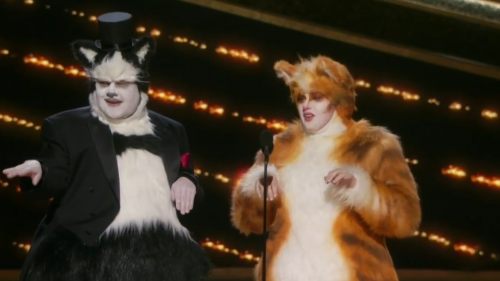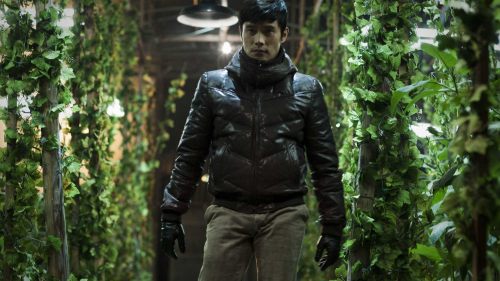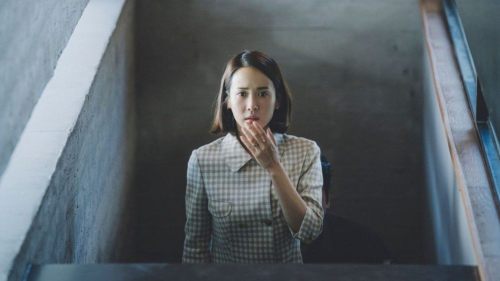The Post-FRENCH CONNECTION Exploits Of The Real Popeye Doyle
William Friedkin's The French Connection sauntered into the 44th Academy Awards with a massive eight Oscar nominations (a figure it tied that year with two other Best Picture candidates: Norman Jewison's Fiddler On The Roof and Peter Bogdanovich's The Last Picture Show), and I imagine everyone involved in the production felt pretty good about their odds that night: the film - a cops versus crooks thriller with an insanely-low-by-modern-day-standards budget of just $1.8m - had been a massive hit at the box office, was embraced by critics (Gene Siskel said the film was so exciting, it caused him to curse his own comparatively boring existence), and was generally considered to contain one of the greatest (if not the greatest) car chase sequences ever captured on film. And on top of all that, it was based on a true story.
In 1961, NYPD detectives Eddie Egan and Sonny Grosso made a landmark bust, seizing 112 pounds of heroin (est. street value: $32m) being shipped into the country from France. This was a big deal, a record-breaking bust at the time, and the case proved compelling enough that a book was written about the whole thing a few years later. That book caught the eye of Hollywood, and in 1971 Ernest Tidyman adapted it into a screenplay. Around the same time, director William Friedkin (who'd later go on to break a few records of his own with The Exorcist) was on the lookout for a new project, something that'd cater to his interests in action, crime and hard-edged drama. The French Connection fit the bill, Friedkin signed on and - after an arduous casting process - detectives Eddie Egan and Sonny Grosso arrived on-set to meet their cinematic counterparts.
Eddie Egan became Jimmy "Popeye" Doyle (a role filled out by Gene Hackman), while Sonny Grosso became Buddy "Cloudy" Russo (played by a pre-Jaws Roy Scheider). Friedkin insisted on having both detectives on-set for the duration of shooting, knowing that they'd be better than anyone at ensuring the production was as true to life as possible. Over the course of filming, Egan and Russo saw to that in all kinds of ways - they guided their counterparts' performances (Hackman's "You ever pick your feet in Poughkeepsie?" line is straight out of the Eddie Egan playbook), they called in favors from the NYPD when crowd control was needed during filming, they brought Friedkin and company into tenements to give them an up-close and personal look at the city's gritty underbelly - and by the end of it both men were totally enamored with the Hollywood experience. Hackman and Scheider were nominated for their work in The French Connection (only Hackman won) and Friedkin won an Oscar for his direction, but one could argue that no one got quite the career boost out of the film that Egan and Grosso did.
Egan's post-French Connection career, in particular, is pretty interesting. In the wake of the film's release, Egan ran into trouble with the NYPD, who - despite Egan's incredible track record (nearly 9,000 arrests over 16 years) - grew progressively annoyed with the detective's celebrity status and general infamy as time went on. They ultimately booted him from the force just hours before he would've been eligible for early retirement benefits, which was particularly tough on the dude: the little money he'd made from participating in the production of Friedkin's film had been sunk into a bar called The Lauderdale Connection and a private detective agency, neither of which turned a profit. With his benefits scrapped (temporarily; a judge eventually reversed the decision, allowing Egan to collect benefits starting in 1976), his home repossessed and nowhere else to turn, the NYPD's former supercop decided to turn his attentions back to Hollywood.
In 1973, following a string of cameo appearances (largely on television), Egan appeared in Howard Koch's Badge 373, another thriller based, to a far lesser extent, on Egan's real-life exploits. This time, Eddie Egan was "Eddie Ryan" (a part played by Robert Duvall), while Egan appears as Ryan's overseer, Lieutenant Scanlon. Badge 373 was a bomb at the box office, but the gig led to another role: a recurring part on NBC's Joe Forrester, a cops-and-robbers TV series starring Lloyd Bridges. Here Egan played Sgt. Bernie Vincent, a role that required him to wear a cop's uniform for the first time in nearly twenty years (in a People Magazine profile from the time, Egan reflected on the irony, saying, "All those years I was a cop and had to act like a civilian, now I'm a civilian and have to act like a cop").
Over the next two decades, Egan popped up in a bunch of other cop-centric TV shows (Baretta, Police Story, TJ Hooker), TV movies (the unfortunately titled Police Story: Confessions Of A Lady Cop) and even a few actual films (Let's Go For Broke, Cold Steel). Egan also appeared, in his trademark porkpie hat, in this Miller Lite commercial in 1979:
Towards the end of his post-NYPD/Hollywood career, NBC tried resurrecting The French Connection's most iconic character in a new series, Popeye Doyle, which would have starred Married With Children's Ed O'Neill as the titular detective. Presumably, the series would have also drawn from Egan's colorful history as a detective with the NYPD (Egan was hired on as a "technical advisor"), but no one ever really got to find out: though a pilot was shot, the series wasn't picked up, and NBC later burned off the production as a one-off made for TV movie, 16 minutes of which has been preserved online thanks to a rando YouTuber by the name of "zeroheadroom":
Though he still took the occasional acting gig, Egan retired to Ft. Lauderdale, FL in 1985. His last on-screen appearance was in the 1989 film Cold Steel, and six years later Egan died in Miami.
It's not completely unheard of for cops to transition from a squad car to the silver screen (see also: Dennis Farina, the guy who played Jerry's dad on Seinfeld), nor is it uncommon for cops to see their real-life exploits adapted for film (San Francisco PD's David Toschi served as the basis for Steve McQueen's Frank Bullitt, Clint Eastwood's "Dirty" Harry Callahan and as the basis for, er, himself, as played by Mark Ruffalo in David Fincher's Zodiac). But it is uncommon for a cop as accomplished as Egan to make that transition, and to have so many of his exploits serve as the basis for film and television. It takes a larger than life dude to make that kinda thing happen, and Eddie Egan was certainly that.



